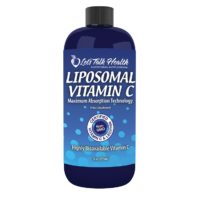 Contrary to popular opinion, Alzheimer’s disease can be prevented. It all depends on a healthy lifestyle. The key is to reduce the risks associated with Alzheimer’s and dementia.
Contrary to popular opinion, Alzheimer’s disease can be prevented. It all depends on a healthy lifestyle. The key is to reduce the risks associated with Alzheimer’s and dementia.
According to Help Guide, six of the most important things you can do to keep your brain healthy include:
- Mental stimulation
- Regular exercise
- Maintain a healthy diet
- Get lots of quality sleep
- Maintain an active social life
- Manage your stress effectively
Do Vitamin Supplements Help Prevent Alzheimer’s?
 One way to stimulate your brain’s functions while maintaining a healthy diet and reduce stress is to supplement your diet with vitamin supplements. It is important to realize, however, that you can’t simply take supplements as a substitute for a healthy diet. You should still focus on eating the right foods in the right amounts, and maintaining a regular exercise regimen.
One way to stimulate your brain’s functions while maintaining a healthy diet and reduce stress is to supplement your diet with vitamin supplements. It is important to realize, however, that you can’t simply take supplements as a substitute for a healthy diet. You should still focus on eating the right foods in the right amounts, and maintaining a regular exercise regimen.
Nevertheless, if you eat right, get enough sleep and exercise, and keep your mind active, then vitamin supplements can help you ward off Alzheimer’s disease.
WebMD recommends Acetyl-L-carnitine, an amino acid that produces body energy and improves heart and brain function.
Another natural body chemical recommended by WebMD as a supplement is Pregnenolone, which slows or reverses the aging process, strengthens the heart, fights fatigue, and increases energy. It has also been used to reduce stress.
Phosphatidyl Choline is found in eggs, soybeans, sunflower, and mustard. The body converts the chemical into acetylcholine, a chemical that scientists are using to treat memory loss, Alzheimer’s, and other brain diseases. Phosphatidyl Serine is a sister chemical that is also used for treating Alzheimer’s disease and declines in age-related mental functions.
Chinese club moss is an herb that is often used for making medicines. A derivative, Huperzine A, is a purified form that is used to treat Alzheimer’s disease and for learning enhancement. Like Phosphatidyl Choline, it increases the body’s levels of acetylcholine.
The Vitamin That Can Boost Your Brain Power
Vitamin C is the most consumed vitamin in the world. It is not only essential in building a strong immune system – its role as the chief water-soluble antioxidant in the human body adds many more benefits. Recent studies are now linking Vitamin C in slowing the progression of Alzheimer’s disease and memory loss.
The August 5, 2011 issue of the Journal of Biological Chemistry reports the finding of researchers at Lund University in Sweden of an ability for vitamin C to dissolve amyloid beta, a substance consisting of misfolded protein aggregates found in the brains of Alzheimer’s disease patients that causes cell death and memory loss. Because there is currently no cure for Alzheimer’s disease, the discovery of any potential treatment that could retard its progression is of tremendous importance in light of the aging population of many parts of the world.
For their research, Katrin Mani and colleagues studied the brains of mice that were bred to develop a condition similar to human Alzheimer’s disease. The authors of the report concluded that the study’s results “support the notion that an inadequate supply of vitamin C could contribute to late onset Alzheimer’s disease in humans.”
“When we treated brain tissue from mice suffering from Alzheimer’s disease with vitamin C, we could see that the toxic protein aggregates were dissolved,” reported Dr Mani, who is a reader in Molecular Medicine at Lund University. “Our results show a previously unknown model for how vitamin C affects the amyloid plaques.”
“Another interesting finding is that the useful vitamin C does not need to come from fresh fruit,” she noted. “In our experiments, we show that the vitamin C can also be absorbed in larger quantities in the form of dehydroascorbic acid from juice that has been kept overnight in a refrigerator, for example.”
“The notion that vitamin C can have a positive effect on Alzheimer’s disease is controversial, but our results open up new opportunities for research into Alzheimer’s and the possibilities offered by vitamin C,” she added.
Many people are sensitive to “mega-doses” of Vitamin C (anything more than two grams). It creates stomach distress and diarrhea — rendering the positive benefits practically non-existent.
We created Liposomal Vitamin C for this very reason. Liposomal Vitamin C has quickly shot up to one of our best-selling products because it works. You absorb much more of this vital nutrient – without the stomach distress and diarrhea.
If you have a history of sensitivity to Vitamin C, but would like to experience its many health benefits, try Liposomal Vitamin C.



